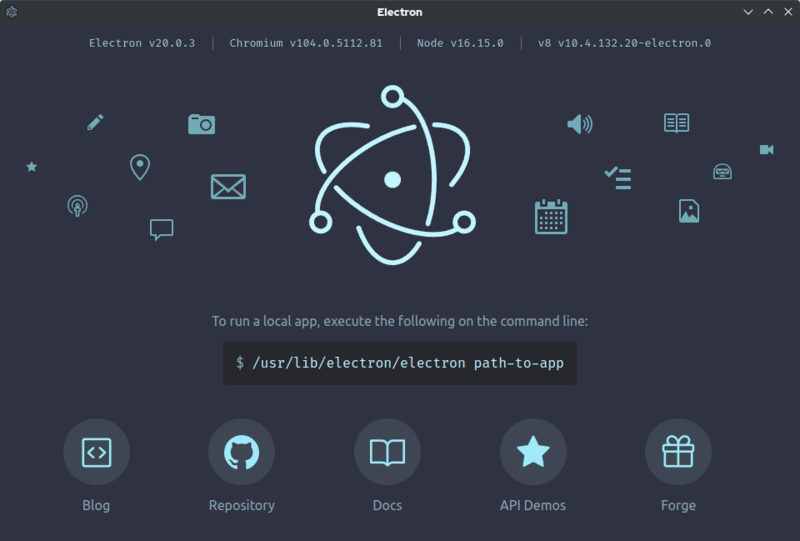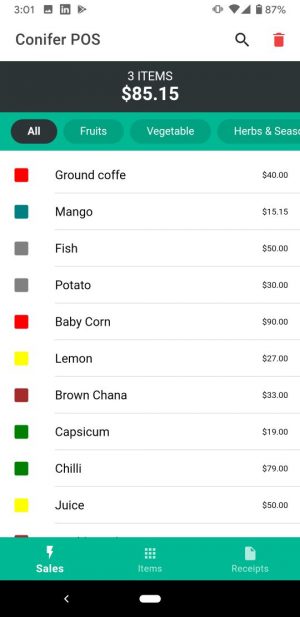Introduction
Electron.js is an open-source framework that enables developers to build cross-platform desktop applications using web technologies like HTML, CSS, and JavaScript. In this article, we’ll discuss the basics of Electron.js development and how to get started with building desktop applications using this powerful framework.
What is Electron.js?
Electron.js, formerly known as Atom Shell, is a framework developed by GitHub that allows developers to create cross-platform desktop applications using web technologies. It is based on Node.js and Chromium and enables developers to build native-like desktop applications using HTML, CSS, and JavaScript.
Advantages of Electron.js
There are several advantages to using Electron.js for desktop application development:
Cross-Platform Compatibility
With Electron.js, developers can build desktop applications that can run on Windows, Mac, and Linux operating systems. This makes it easier to develop applications that can reach a wider audience.
Familiar Development Environment
Developers who are already familiar with web technologies like HTML, CSS, and JavaScript can easily get started with Electron.js development. There’s no need to learn new programming languages or tools.
Access to Native APIs
Electron.js provides access to native desktop APIs, which makes it possible to build applications with native-like functionality. This includes access to system notifications, menus, and file systems.
Large Community
Electron.js has a large and active community of developers who contribute to the framework and create plugins and tools that make development easier.
Getting Started with Electron.js Development
Now that we’ve discussed what Electron.js is and its advantages, let’s dive into the steps to get started with Electron.js development:
Step 1: Install Node.js
To get started with Electron.js, you first need to install Node.js, which is a JavaScript runtime built on Chrome’s V8 JavaScript engine. You can download the latest version of Node.js from the official website.
Step 2: Install Electron.js
Once Node.js is installed, you can install Electron.js using the npm package manager. To install Electron.js, open your terminal or command prompt and enter the following command:
npm install electron --save-dev
Step 3: Create a New Electron.js Project
To create a new Electron.js project, you can use the Electron Quick Start repository, which provides a basic Electron.js project structure. You can download the repository from GitHub or use the following command to clone the repository:
git clone https://github.com/electron/electron-quick-start
Step 4: Run the Electron.js Application
After creating the new Electron.js project, you can run the application using the following command:
npm start
This will launch the Electron.js application on your desktop.
Best Practices for Electron.js Development
To ensure that your Electron.js applications are secure and performant, it’s important to follow best practices for Electron.js development:
Keep the Application Lightweight
Electron.js applications can be resource-intensive, so it’s important to keep them lightweight by minimizing unnecessary features and using efficient code.
Keep the Application Secure
Electron.js applications are vulnerable to security risks, so it’s important to keep the application secure by using HTTPS and implementing security best practices.
Use Native APIs Carefully
While Electron.js provides access to native desktop APIs, it’s important to use them carefully and only when necessary. Overuse of native APIs can impact the performance of the application.
Conclusion
In conclusion, Electron.js is a powerful framework for building cross-platform desktop applications using web technologies. With its large community, familiar development environment, and access to native desktop APIs, Electron.js is a great choice for developers who want to build desktop applications quickly and efficiently.
FAQs
1: Can Electron.js be used for mobile app development?
No, Electron.js is a framework designed specifically for desktop application development. If you’re looking to build mobile apps, you’ll need to use a different framework or technology.
2: Does Electron.js have any limitations?
While Electron.js is a powerful framework, it does have some limitations. For example, it may not be suitable for building applications that require real-time communication or low-level hardware access.
3: Can I use any web technology with Electron.js?
Yes, Electron.js supports a wide range of web technologies, including HTML, CSS, JavaScript, and Node.js.
4: Is Electron.js a good choice for beginners?
Yes, Electron.js can be a good choice for beginners who are already familiar with web technologies like HTML, CSS, and JavaScript. However, it’s important to follow best practices for development to ensure that your applications are secure and performant.
5: How can I contribute to the Electron.js community?
There are several ways to contribute to the Electron.js community, including submitting bug reports, creating plugins or tools, and contributing to the framework’s documentation or source code. You can find more information on the Electron.js website.





